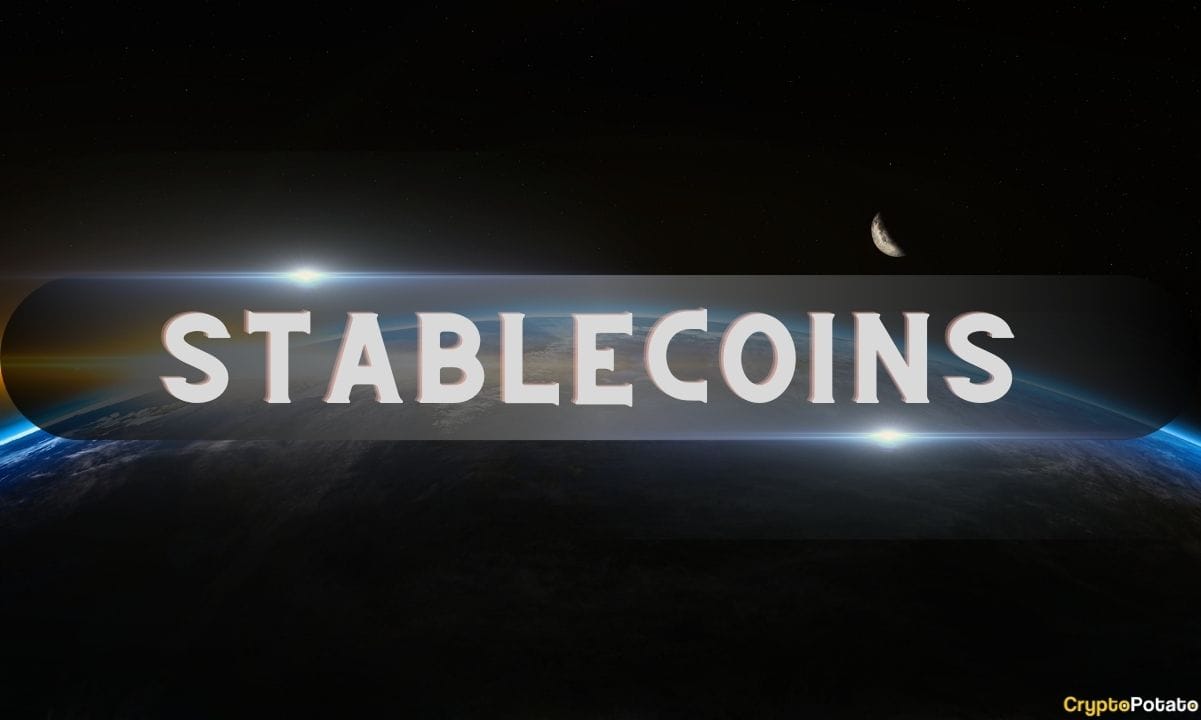According to Token Terminal data, the monthly stablecoin transfer volume surged to over $1.68 trillion in April, marking a significant increase from the $100 billion recorded in October 2020.
This 16-fold rise highlights the potential of stablecoins in enhancing financial processes and facilitating cross-border transfers.
Record-Breaking Stablecoin Volumes
In a recent post on X, Token Terminal shared data indicating record-breaking performance in stablecoin transfer volumes. Average monthly volumes have surged from $100 billion four years ago to $1 trillion recently.
This analysis included stablecoins from major issuers such as Tether, Frax Finance, Circle, Paxos, MakerDAO, Liquity Protocol, Athena Labs, Angle Protocol, Aave, Monerium, and more.
Visa’s network, referenced as a benchmark in Token Terminal’s post on X, also tracks their data. It reported significant spikes in stablecoin activity, noting over 31.2 million users who conducted more than 350 million transactions, resulting in a transaction volume of $2.7 trillion in the last 30-day period.
However, despite the massive and largely positive stats reported in April, the monthly transfer volumes slightly dipped in May 2024.
More data indicates that as of June, the combined market value of all stablecoins is now more than $162 billion, 24% up from $130 billion in early Jan 2024.
Ethereum-based stablecoins dominate the market, holding over 49.49% of the market share. As stablecoin transfer volumes surged in April, those based on Ethereum led the market, with DAI reporting volumes of $636 billion. This represents a significant increase, with April’s DAI volumes being over three times higher than in March.
Growing Interest: A Paradigm Shift
The recent surge in stablecoin volumes indicates a growing interest in this asset class. Analysts emphasize the role of stablecoins in facilitating various financial services, particularly cross-border transfers.
Circle CEO Jeremy Allaire forecasts that stablecoins could constitute 10% of global economic money within the next decade. He predicts that by the end of 2025, they will be recognized as legal electronic money in most major jurisdictions.
Earlier this year, JPMorgan analyst Nikolaos Panigirtzoglou commented on the substantial growth of the stablecoin market, highlighting their role in linking traditional finance to the crypto ecosystem. He noted that stablecoins, functioning as the equivalent of cash within the crypto space, serve both as a lubricant and a significant source of collateral.
Panigirtzoglou suggested that this growth signals even more promising prospects for the stablecoin market, solidifying their position as the primary bridge between traditional finance and blockchain.
